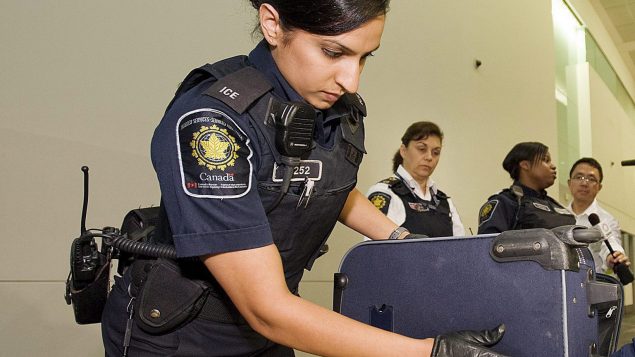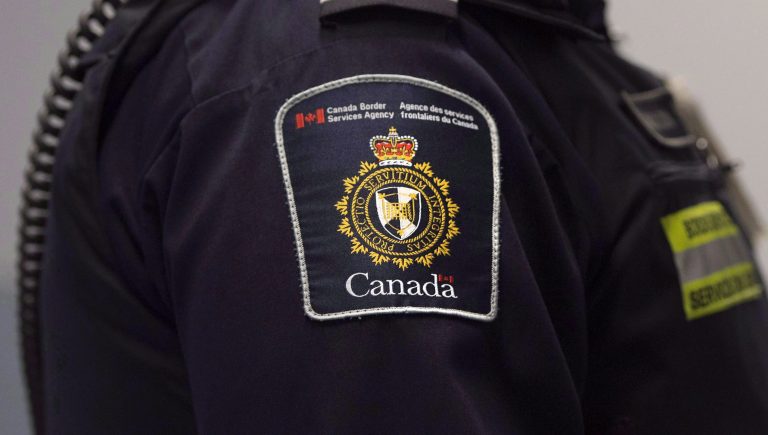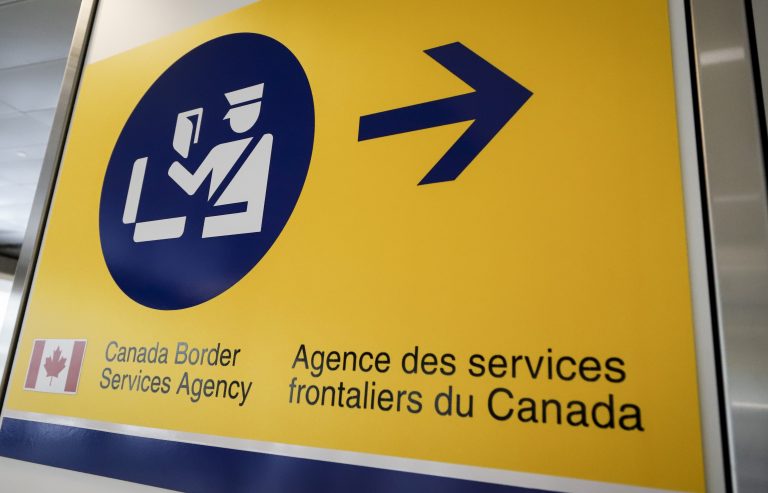Canadians are major customers in Cuba’s child sex market
HAVANA—Set against a backdrop of gutted buildings and faded hope, Michael is all smiles. He’s fiftysomething, sports a greying moustache last in fashion in the ’70s, and stares out from beneath a ball cap emblazoned with a red maple leaf. Sauntering into a downtown Havana bar, his left arm wound tightly around the waist of an attractive young Cuban woman, he’s in his element. She, meanwhile, is working.The Vancouver Island native flashes a grin at two European mates who, like him, have come to regard Havana as a second home.
The bartender welcomes him like an old friend. Everyone here, as the song goes, knows his name.“There’s a lot worse places to be,” Michael says, in a toast to shared good fortune. “This is the promised land.”Michael is on the inside of a well-kept secret.
Canadians are travelling to Cuba in surprising numbers to sexually exploit young people trapped in this socialist country’s underground sex tourism industry, a joint investigation by the Toronto Star and El Nuevo Herald, the Spanish-language sister publication of the Miami Herald, has found.Havana’s conspicuous scenes of street-level prostitution are the public face of a hidden, sordid trade in children as young as four. Many prostituted children in Cuba are second- or third-generation, following in the footsteps of sex-worker mothers to earn money for families complicit in their exploitation.
Cuban authorities deny the problem. And Canada’s lax oversight suggests any self-proclaimed moral obligation to protect children from abuse stops at our own borders. Convicted Canadian sex offenders face little scrutiny leaving the country, little prospect of having foreign authorities warned of their arrival and little chance of being flagged by border authorities upon arrival back in Canada.
Canadian border authorities have no access to the country’s sex offender registry and limited access to Canada’s criminal record database. In an exclusive interview with the Star, Public Safety Minister Vic Toews acknowledged shortcomings, saying the travel of convicted sex offenders is “one of the very significant issues that does need to be addressed” through better monitoring. “Are there additional steps I would like to see taken?” he said. “Absolutely. Am I encouraging the government to move in that direction? Absolutely.”Canadian men, generally between 40 and 60 years of age, are among the most numerous sexual predators in Cuba, according to internal government reports, international experts, diplomatic cables and on-the-ground interviews.
The RCMP, in a confidential 2011 report on child sex tourism obtained by the Star through access-to-information requests, lists Cuba as a top destination in the Americas for Canadian sex tourists.“The issue of Canadian travelling child sex offenders is likely greater than previously thought,” the report concludes. And one of the key drivers behind any flourishing child prostitution market is “an established and active sex trade.” Cuba easily meets that definition. For sex tourists, the island holds unique allure. It’s closer and cheaper than destinations such Thailand and Cambodia. HIV rates are dramatically lower than in most countries. And a trip to Cuba for single male tourists is free from the social stigma associated with Phuket or Phnom Penh.
Furtive negotiations with pimps, cabbies and staff at high-end Cuban hotels can easily procure meetings with young boys or girls, according to undercover conversations with Cuban insiders and hotel security staff last month.“That’s prohibited here in the hotel,” a security head at one of Havana’s large hotels told a reporter posing as sex tourist. That’s because young Cuban girls appearing at the city’s high-end hotels in the company of men are instantly flagged by security staff, who often demand payment to allow their entry.
But he carefully described the process for accessing underage girls. “The young girls aren’t on the street. They’re in houses waiting for the call from pimps.”The secure — and surreptitious — environment for meeting them is a private lodging called a casa particular, where tourists can rent rooms for about $10 a night. “They don’t care what you’re doing there,” said one hotel security guard. “Whatever you want. Orgies, anything.”That advice mirrors the findings of the 2011 RCMP report, which says child sex “facilitators,” including “taxi drivers and/or hotel staff, can sometimes be used to arrange discreet meetings with potential child victims.”A Cuban casa particular provides a safe zone where child sex offenders “access children and locals who are willing to facilitate crimes against children in return for financial compensation,” says the report, titled Canadian Travelling Child Sex Offenders. “Poor or dysfunctional families may be particularly willing to open their doors to foreigners with the hope of reaping some financial benefits or so they can receive food or material items.
Offenders can, and often do, capitalize on this vulnerability to gain sexual access to child victims.”U.S. diplomats documented the same money-for-child-sex system operating with the knowledge and permission of families in a 2009 cable to Washington. “Some Cuban children are reportedly pushed into prostitution by their families, exchanging sex for money, food or gifts,” it reads. The cost of forbidden youth is startlingly cheap: as little as $30 for the night.Manuel, a lean, 30-something lawyer from Mexico City, is flanked by two scantily clad young prostitutes outside a Varadero hotel as he proudly whispers to an undercover reporter in English: “I got them both for $40. We’re going back to (a casa particular) in Havana. Do you want to stay with us in our house with girls? Come with me.
There’s so many!”Exploitation thrives where poverty exists, and in that respect, Cuba is no different from Cambodia or Thailand. Ivan Garcia, a dissident blogger and journalist in Havana, says the young girls and boys in the trade are typically poor, hopeless and desperate: “For these people, ‘future’ is a bad word.” Parents who usher their children into the sex trade are motivated by something much bigger than money, he says. The real goal, he says, is the hope of securing marriage to a wealthy foreigner.He knows two 12-year-old girls currently working the streets. “They see that this girl married some Italian and now she’s dressing nice, fixing up her mother’s house — it’s the illusion that you can get ahead if you prostitute yourself . . . the illusion of leaving the country, the illusion of a visa.”That illusion most often ends in exploitation and tragedy.
In 2011, three Italian men were sentenced to between 20 and 25 years in prison for murder and corruption of minors after the body of a 12-year-old girl was dumped in Bayamo, a city in eastern Cuba. The girl — Lilian Ramirez — was a 12-year-old prostitute the men hired for a party along with two 13-year-olds and a 14-year-old, says Laritza Diversent, a dissident Cuban lawyer who worked on the case.
The government handles such cases “with a lot of care and closed trials,” says Diversent.Diversent considers child prostitution in Cuba “a serious matter because of what I see every day on the street — very young girls and boys with much older foreigners.”In her own Havana neighbourhood growing up, she recalls, she had a nine-year-old friend who “was groped lasciviously” by adult men for cash. “There’s a moment when they dedicate themselves to prostitution and there’s somebody who uses them, usually someone from their own neighbourhood.” Prostitutes under 16 can be charged with “pre-criminal dangerousness” and be sent to youth interment camps But foreigners caught with prostitutes older than 16 rarely face arrest, she says. And it’s alleged that police accept bribes from prostitutes and pimps to look the other way.
The Canadian government keeps secret how many Canadians have been prosecuted in Cuba for sex crimes.Concern for the privacy of the Canadians charged or convicted in the Cuban sex trade is the government’s stated rationale.
So few have been prosecuted for the crime that releasing even aggregate figures could identify them, the government says. But there’s no question that some Canadians have been prosecuted for exploiting young Cubans.“A number of tourists, including Canadians, have been convicted of offences related to the corruption of minors,” the Department of Foreign Affairs and International Trade notes on its website about Cuba.And a study on Cuban sex tourism by the global monitoring group End Child Prostitution, Child Pornography and Trafficking of Children for Sexual Purposes (ECPAT) found “much of the literature points to Canadians as being high on the list of offenders.”In 2003, ECPAT reported that a 53-year-old Canadian man had been sentenced to 10 years in prison for sexually abusing a 13-year-old girl.
Another Canadian man was sentenced to 25 years in prison for the sexual abuse of a 15-year-old.James Cason, the top American diplomat in Havana between 2002 and 2005, says Canadians are among the most enthusiastic customers of the Cuban child sex trade. “The ones pouring in were Canadians and Europeans, and that’s where I saw the problem (of child prostitution),” Cason said in an interview.While Cuban government action against sex tourists appears to be rare, U.S. cables, released by the activist group WikiLeaks, suggest vigorous punitive actions are taken against victims of the country’s underage sex trade. “Police occasionally rounded up women and children in Cuba’s sex trade and charged them with vague crimes,” reads one 2009 cable. “Adolescents found in prostitution were sent to either juvenile detention facilities or work camps emphasizing politicized rehabilitation.
”The “Recommendations for Cuba” detailed in the same memo reads: “Acknowledge that child sex trafficking in Cuba is a problem; provide greater legal protections and assistance for victims; develop procedures to identify possible trafficking victims among vulnerable populations; increase anti-trafficking training for law enforcement; and, take greater steps to prevent the trafficking of children in prostitution.”That advice has most certainly fallen on deaf ears inside the Cuban government.
A request by the Star for an interview with the Cuban Embassy in Ottawa was ignored.Led today by Fidel Castro’s younger brother Raul, Cuba continues to officially deny that sexual predators are among the sun seekers and families pouring into the country.The numbers of arrests and prosecutions for child exploitation are tightly protected, and Cuba restricts the presence of international and domestic NGOs. Official denial reaches beyond mere marketing. It is an expression of deeply felt revolutionary pride. Fidel Castro cracked down on prostitution after the 1959 revolution and boasted his country would no longer be the American brothel.“There are no women forced to sell themselves to a man, to a foreigner, to a tourist,” he said in 1992. “Those who do so do it on their own, voluntarily, and without any need for it.
We can say that they are highly educated hookers and quite healthy, because we are the country with the lowest numbers of AIDS cases . . . Therefore, there is truly no prostitution healthier than Cuba’s.”The sex marketplace in Cuba’s cities and resorts began to emerge after the Soviet Union’s collapse meant billions of dollars in annual subsidies from Moscow dried up.Today, the influx of foreign money may well make prostitution among the most profitable jobs in a country where the average monthly salary officially stands at less than $20. Cuba’s well-educated sex workers include a young woman who calls herself Chachi. Cherubic and young, her face is devoid of anything that suggests the broken life that brings her to Havana’s main prostitution strip — the seaside Malecon boulevard — at midnight. She was born and raised in a neighbouring province and attended university for two years, studying to become a veterinarian. Then she became pregnant.
Now, with a three-year-old boy to look after, Chachi rents a Havana apartment for a month at a time, spending her days and evenings with male tourists like Michael. “I can cook, I can do dishes, I can clean the house,” she says through an interpreter. “I can do whatever you want.”Over a beer, she opens up about her humiliation having to walk the streets and the reasons she does it. “He is beautiful,” she says of her little boy, who remains living with her mother in her hometown. “I am here for him. I wait for money from tourists so I can send it to him and my mother.” The U.S. State Department consistently classifies Cuba as a “Tier 3” country — the worst in its rankings — when it comes to combating sex trafficking.“Cuba is a source country for adults and children subjected to sex trafficking and forced labour,” the State Department warns in the 2012 edition of its annual review of global human trafficking. “The country’s laws do not appear to penalize prostitution of children between the ages of 16 and 18.” The report concludes that the Cuban government has made “no known efforts to reduce the demand for commercial sex.”
Teresa C. Ulloa Ziaurriz, Mexico-based director of the Coalition Against Trafficking in Women in Latin America, says the problem of exploitative predators from Canada and Europe is likely to grow as Cuba opens its doors to ever more tourism. “All the Caribbean islands are really a paradise for child sex tourism,” she says. “We call sex tourism inverse trafficking — instead of taking the victims out of the country . . . the demand travels to where the supply is. “Why are they coming to Latin America and the Caribbean to buy sex from those who are in more vulnerable situation? This is the merchandisation of the bodies of women and girls.”Back in Havana, Michael certainly appears to be having a marvellous trip. Ask him about the city’s surprisingly open prostitution industry and he’ll launch into an X-rated Frommer’s guide to the most promising marketplaces for women in the city. “If you go to places like the (club) Cecilia, then you’re going to see top-of-the-line girls, but they’re going to be charging top-of-the-line prices,” he notes. “I prefer places like the Hotel Deauville where they’re accessible . . . Whores galore.”The retired British Columbian spends up to six months a year in Havana, a place he’s been visiting for two decades. “It’s hard not to be inspired by this,” he says as he directs his eyes to the young prostitute accompanying him this night. “And that,” he adds, his eyes visually pointing to one of several other young prostitutes in the bar with whom he shares warm banter and familiarity.With more time on his hands, his travels have been expanding of late to a more well-known sex tourism destination — Cambodia. “The Cambodian people just impress the f— out of me,” he says. “They’re extremely nice. And you can get a really f—— sexy woman. The sex is great. The beach is fantastic. The food, because it’s got the French influence in it.”His travelogue complete, Michael smiles once more and extends his hand: “We’re all Canadians.”The Ugly Canadians is a series produced jointly by the Toronto Star and El Nuevo Herald, the Spanish-language sister publication of The Miami Herald.Blogger and journalist, Havana
#abajoelcastrocomunismo































